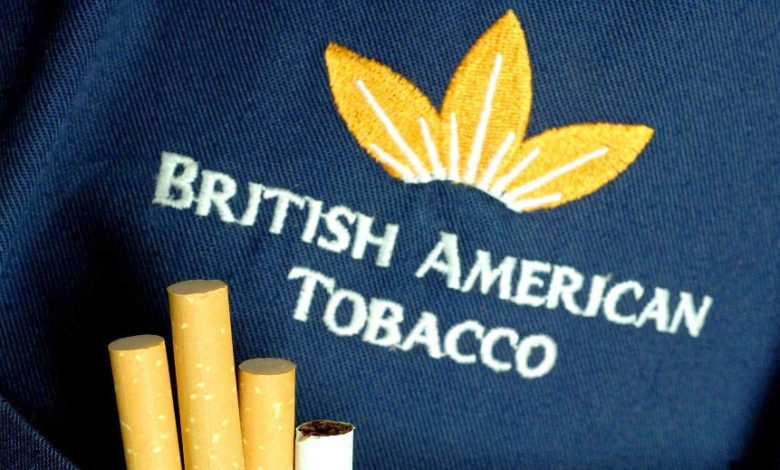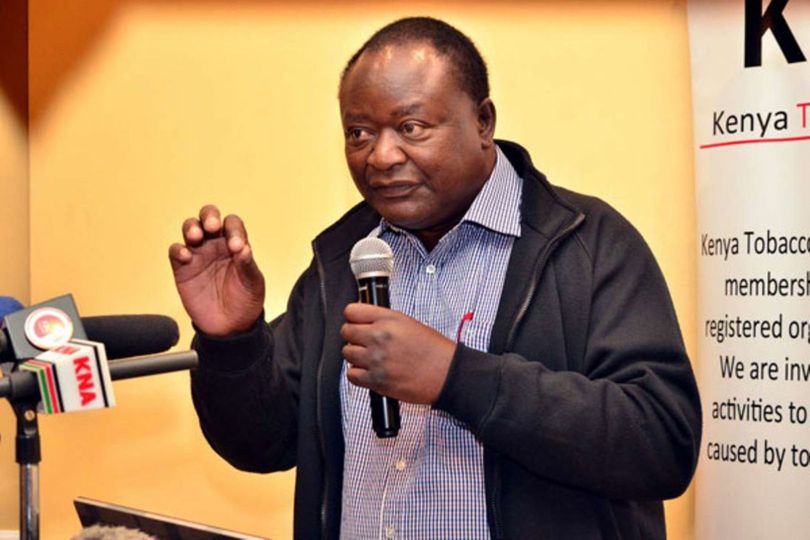British American Tobacco Defies Kenya’s Health Laws
Tobacco related diseases kill at least 8,000 Kenyans annually, according to the ministry of health. To reduce the damage, the Government of Kenya signed the World Health Organisation (WHO) treaty on tobacco control in 2004. Despite the existence of several laws, a study by the University of Bath shows how one company in Kenya uses unethical means to frustrate the implementation of life-saving tobacco control policies.

British American Tobacco (BAT-Kenya) may have bribed public officials to frustrate the execution of tobacco control laws, research by UK’s University of Bath suggests. BAT is a UK cigarette manufacturer operating in Kenya. Its Kenyan subsidiary BAT-Kenya has been listed on the Nairobi Securities Exchange since 1969.
The research has uncovered payments made by BAT-Kenya officials to a politician and workers at Mastermind Tobacco, a competitor company. The payments may have helped secure influence on health policies in Kenya, and disrupted operations at Mastermind Tobacco Limited.
Every year, more than 8,000 Kenyans die of tobacco related diseases, according to Health Cabinet Secretary Mutahi Kagwe. This includes both smokers and non-smokers who inhale second-hand smoke. Speaking on World No Tobacco Day on May 31, 2021, he said the Ministry of Health was working closely with other ministries, department agencies and counties to implement tobacco control measures.
These measures are drawn from the World Health Organization’s Framework Convention on Tobacco Control (FCTC), which Kenya signed on June 26, 2004.
CS Kagwe added that the goal is to reduce the demand and supply of tobacco. He however admitted that there are many challenges that have slowed down the process.
FCTC is the world’s first ever public health treaty. It aims at limiting tobacco use which is responsible for annual deaths of eight million people globally, according to the WHO.
No tobacco advertisement
Article 5.3 of the FCTC requires countries to protect their public health policies from commercial and other vested interests of the tobacco industry.
To prevent a conflict of interest, it outlaws political contributions by the tobacco industries, and payments or gifts to government officials or employees.
Article 6 requires that parties periodically raise taxes on tobacco products to reduce consumption.
To imply the FCTC treaty, Kenya enacted the 2007 Tobacco Control Act, which bans tobacco advertising, and the involvement of cigarette companies in making health laws.
However, a new analysis based on whistleblower documents, which were evaluated by the Tobacco Control Research Group at the University of Bath, paint a different picture. The analysis suggests that BAT-Kenya allegedly used payments to individuals and potentially unlawful surveillance to tighten its already crushing market grip on Africa.
No prosecution
The UK government has been probing BAT over these allegations. Early this year they said the evidence gathered “did not meet the evidential test for prosecution as defined in the Code for Crown Prosecutors”.
In a statement, BAT-Kenya said it was pleased that the UK’s Serious Fraud Office (SFO) had closed its investigation and was taking no further action.
The evidence about the company’s activities, in Kenya and several east and central African countries and another on its aggressive tactics in South Africa—suggest the company made potentially illegal payments to secure influence on health policies in key African countries.
Payments include hand-delivered cash, cars, allowances and campaign donations to politicians. They also paid civil servants, journalists as well as people working at competitor companies.
The analysis was also reported on the BBC’s Panorama programme, titled: “Dirty Secrets of the Cigarette Business“.
The illegal payments in Kenya include:
- More than $28,500 to sources within the Kenya Revenue Authority (KRA) and more than $38,500 to former justice minister Martha Karua, allegedly in exchange for intelligence and for assistance to prevent SICPA from winning a security tender over Codentify SICPA is a Swiss company that provides track and trace systems to prevent illicit cigarette trade. Karua has however denied the allegations several times in public gatherings, on her twitter account and through her lawyer.
- Roughly $56,000 to a private contractor, allegedly to covertly establish a trade union and orchestrate labor unrest at a competitor company. The effort was dubbed “Operation Snake.”
The analysis also shows how one employee used the alias “Amanda” from her unofficial email account when requesting payments to government ministers and civil servants, but signed off in her own name instead of “Amanda”.
Legal action demanded
Health advocates in Kenya have demanded that the government takes action against the cigarette manufacturer.

The head of the Kenya Tobacco Control Alliance Mr Joel Gitali said the allegations are grave, especially when Kenya is headed to a General Election in 2022.
“Recently we have seen the tobacco industry in Kenya using some MPs to make life saving laws less effective. For instance, they reduced excise tax on products containing nicotine from Sh5,000 per kilogramme to Sh1,200 per kilogramme.”
Gitali added that “as we head into elections we will be extremely watchful because we know they will try to fund some politicians to protect their businesses. These businesses involve recruiting children and young people to smoke cigarettes and nicotine products, and profiting from their addiction until these products kill them. The cycle continues.”
Gitali expressed anger that despite evidence, individuals flouting health policies are never prosecuted.
He said: “For instance, in October 2020 the Health CS confirmed nicotine pouches were illegally registered as medicine by the Pharmacy and Poisons Board, contrary to the provisions of Section 25 of the Pharmacy and Poisons Act CAP 224. Until now, nobody has been punished. The government must investigate the matter to save the public.”
Nicotine pouches are white pre-portioned pouches containing either tobacco derived nicotine or synthetic nicotine, but no tobacco leaf, dust or stem.

Gitali also accused the tobacco industry of illegally selling cigarettes to children in Kenya.
Africa is the only region in the world where cigarette sales are still growing, according to the WHO.
Top 5 countries with the highest smoking rates:
- Kiribati (52.40%)
- Nauru (47.50%)
- Greece (42.65%)
- Serbia (41.65%)
- Russia (40.90%)
Kiribati is a small independent island nation in the central Pacific Ocean. It has a population of 119,000 people. According to the ministry of health, Kenya has a smoking rate of 12%.
Experts from outside Kenya are demanding that the government should take action. Commenting on the findings, Bintou Camara Bityeki, director of Africa programmes at the Campaign for Tobacco-Free Kids, which supports tobacco control activities in Africa, said governments must be ever-vigilant against the tobacco industry.
“Rather than giving in to the industry, governments can save lives by implementing proven measures that protect the health of their citizens from the dangers of tobacco products as called for by the WHO FCTC,” she said in a press release sent directly to journalists.
She added: “Tobacco use kills eight million people worldwide each year and is projected to kill one billion people worldwide this century unless countries take effective action. The vast majority of these deaths will occur in low- and middle-income countries like those featured in the investigation.”
Akinbode Oluwafemi, President of the African Tobacco Control Alliance, said the tobacco industry’s behavior “is a reminder of the tobacco industry’s deep colonialist roots, showing contempt for African laws, business and trade and the health and well-being of Africans. Then and now, the tobacco industry seeks to exploit Africans for its own profit with no consideration for the harm it causes.”
Andrew Rowell, a Senior Researcher of the Tobacco Control Research Group at the University of Bath, said: “This is not the kind of company any government should leave unregulated or fail to investigate.”
The advocates say even if the evidence does not meet the prosecution threshold, Kenya must tighten tobacco control laws. It also needs to seal loopholes exploited by the industry to stop or water down legislation.
Tobacco’s impact on health
There are at least 2.5 million adults who use tobacco in Kenya, according to the Global Adult Tobacco Survey (GATS) 2014.
The tobacco industry in Kenya accounts for an estimated 7 per cent of the GDP in Kenya, according to analysis by the University of Bath.
In June 2019, BAT Kenya said it had contributed over KSh 80 billion to national revenue through various taxes (Excise Duty, Value Added Tax (VAT), Pay as You Earn (PAYE) and Corporation Tax.
However, analysis by Nairobi-based thinktank Institute of Legislative Affairs (ILA) shows Kenya spends three times that amount to treat diseases caused directly by tobacco use. These include cancers, and heart diseases.
What journalists should do:
- Follow up the progress Kenya has made in implementing its Tobacco Control Act, 2007.
- Interview health experts on why tobacco is a major risk factor for non-communicable diseases.
- Investigate how other countries in the world are limiting the use of tobacco.
- Explore why countries are unable to ban tobacco use despite its proven harm to health and economy.
- Interview experts at the Ministry of Health Tobacco Control Division and the Kenya Tobacco Control Alliance to get latest data and trends.
I truly appreciate this post. I have been looking everywhere for this! Thank goodness I found it on Bing. You’ve made my day! Thanks again!